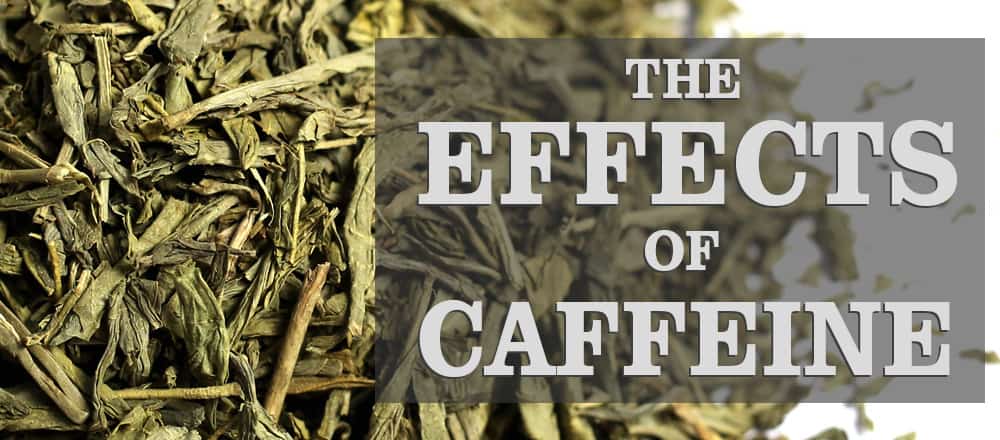Effects Of Caffeine On You

What does caffeine do to the body? What effects does it have? For starters, it depends on the individual. It also depends on the amount of caffeine intake.
In this article, The Kent and Sussex Tea and Coffee Company will talk you through the basics of caffeine. We will explore the science behind it, as well as its potential health benefits. Keep reading to find out more!
Table of Contents

What is Caffeine?
According to legend, Tea was discovered in 2737 BCE. Consumption of Coffee, meanwhile, likely dates back to at least 850 CE. Despite this, the discovery of caffeine within these two ingredients wasn’t until the 1820s.
This is credited to Friedrich Ferdinand Ruge, a 19th-century German Scientist who also named the substance. The term “caffeine” derives from a combination of the German word “kaffee” and the French word “café”.
Today, we know that caffeine exists in not only Tea and Coffee, but also in around 60 other plants. It can also be made artificially, and is found in numerous commercial products including energy drinks and cold/flu remedies. But what, exactly, is it?
Caffeine is a naturally occurring stimulant. Once consumed, it is quickly absorbed into the bloodstream, eventually travelling to the liver. There, it is broken down and passed on to numerous other organs in the body, namely the brain.

What Does Caffeine Do?
What does caffeine do? For most of us, this chemical compound is a much-needed boost first thing in the morning. Indeed, it helps us get out of bed and ready for work. Its effect on the brain, in particular, is the main reason behind this.
Caffeine functions by blocking adenosine, a neurotransmitter that relaxes the brain while making you feel less tired. In doing this, essentially has the opposite effect: it makes us feel more energised and less sleepy. It may also increase blood adrenaline levels and even heighten brain activity of the neurotransmitters dopamine and norepinephrine.

What are the Benefits of Caffeine
Caffeine is the most commonly consumed pharmacologically active stimulant in the world. For some, however, it isn’t only about feeling more awake. Indeed, preliminary research suggests that caffeine intake may come with certain health benefits.
Once, the World Health Organisation (WHO) considered caffeinated Coffee as a carcinogen. Today, evidence indicates that coffee may instead reduce the risk of liver cancer by up to 40%. This might be because of its ability to reduce the amount of fat inside the liver.
Similarly, huge studies of more than 30,000 people suggest that caffeinated Coffee may reduce the risk of type-2 diabetes. What’s more, we’ve even seen a link between Coffee Beans and Alzheimer’s, with suggestions made that it could delay onset.
Another US-based study conducted at Johns Hopkins University in Baltimore, Maryland, went further still. It noted that a 200mg caffeine pill helped to boost memory consolidation.
Until we know more, however, we do not endorse caffeine consumption for the aforementioned benefits. Instead, we support ongoing research, which so far looks very promising.

What are they Side Effects of Caffeine
Overconsumption of caffeine can lead to several potential side effects. Most notably, it can bring about jitteriness, sleeplessness and dehydration.
Additionally, it can fuel our stress hormones, which may have an impact on our mental health. It could also cause digestive issues, high blood pressure, rapid heart rate, caffeine addiction and, ironically, fatigue.
Those who’re pregnant, in particular, should exercise caution when consuming caffeine. NHS Choices urges pregnant women not to have more than 200mg daily. This is the equivalent to two cups of Coffee a day. The same applies to those who’re caffeine-sensitive.
Some people may also experience caffeine withdrawal symptoms if they’re heavily dependant on the substance. This typically happens after 12-24 hours of not consuming it, which most commonly causes headaches and irritability.
While caffeine can help us feel energised, relying on it could mean you’re missing the real reason behind your fatigue. For example, you could be iron- or vitamin B-deficient. For these reasons, we recommend a medical consultation should you have any concerns

Conclusion
When it comes to “what does caffeine do”, the answer is a little more complicated than it appears. Indeed, it has its pros and cons. There is no denying the fact, on the one hand, that its stimulating effect helps in daily life. Furthermore, it may even come with health benefits.
On the other hand, overconsumption can likewise come with side effects. It all depends on your circumstances (e.g. whether you’re pregnant or sensitive), as well as how much you consume.
Most agree that 400mg daily is safe for the vast majority of people. In other words, you can drink approximately four cups of Coffee or eight cups of Tea without worrying.
Alternatively, you could go down the ‘decaf’ route. Here at The Kent and Sussex Tea and Coffee Company, we stock a wide variety of decaffeinated products. Why not find out more information in our blog, “How Much Caffeine in Tea and Coffee”
Whether you’re for or against caffeine, we have something for you. Best of all, we pack everything fresh to order. This ensures not only quality but also consistency. What more could you want from your morning cuppa?

 Loose Leaf Tea
Loose Leaf Tea Pyramids
Pyramids Tea Bags
Tea Bags Africa
Africa Assam
Assam Ceylon
Ceylon Chinese
Chinese Darjeeling
Darjeeling European
European Indian
Indian Japan
Japan Nepal
Nepal South East Asia
South East Asia Ayurveda Tea
Ayurveda Tea Black Tea
Black Tea Chai Tea
Chai Tea Flowering Tea
Flowering Tea Fruit Tisanes
Fruit Tisanes Green Tea
Green Tea Herbal Tea
Herbal Tea Matcha Tea
Matcha Tea Oolong Tea
Oolong Tea Organic Tea
Organic Tea Pu erh Tea
Pu erh Tea Rooibos Tea
Rooibos Tea White Tea
White Tea Asian Coffee
Asian Coffee Caribbean Coffee
Caribbean Coffee Central American Coffee
Central American Coffee South American Coffee
South American Coffee Coffee Blends
Coffee Blends Decaffeinated Coffee
Decaffeinated Coffee Espresso Coffee
Espresso Coffee Ethically Sourced Coffee
Ethically Sourced Coffee Flavoured Coffee
Flavoured Coffee Organic Coffee
Organic Coffee Single Origin Coffee
Single Origin Coffee Chocolate 1
Chocolate 1 Chocolate 2
Chocolate 2 Chocolate 3
Chocolate 3 Chocolate 4
Chocolate 4 Chocolate 5
Chocolate 5 Chocolate 6
Chocolate 6 Chocolate 7
Chocolate 7 Chocolate 8
Chocolate 8 Chocolate 9
Chocolate 9 Loose Tea Filters
Loose Tea Filters Tea Accessories
Tea Accessories Tea Bricks
Tea Bricks Tea Caddies
Tea Caddies Tea Caddy Spoons
Tea Caddy Spoons Tea Gift Ideas
Tea Gift Ideas Tea Infusers
Tea Infusers Tea Strainers
Tea Strainers